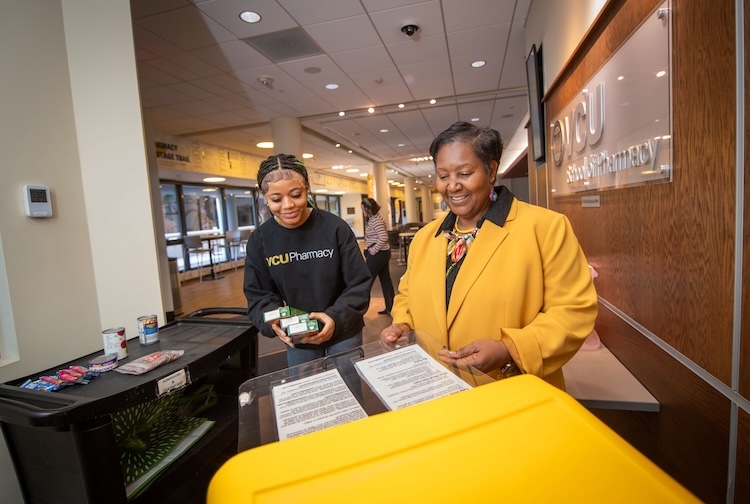VCU researchers have found a new tool to encourage pregnant women to seek treatment for substance abuse disorders
By building stronger bonds with their unborn baby, VCU researchers say ultrasounds can improve prenatal care and mitigate maternal mortality risks.
July 07, 2025 Earlier research from VCU School of Nursing highlighted the potential of ultrasound as a way to strengthen the emotional bond between mothers and their babies. (Getty Images)
Earlier research from VCU School of Nursing highlighted the potential of ultrasound as a way to strengthen the emotional bond between mothers and their babies. (Getty Images)
By Caitlin Hanbury
The United States continues to face a profound maternal health crisis, with a maternal mortality rate more than triple that of its global peers.
Substance use disorder (SUD) is likely playing a significant role in exacerbating this trend, as 8% of pregnant women in the U.S. are diagnosed with the condition – further underscoring the urgent need for targeted interventions to save mothers’ lives.
Researchers across Virginia Commonwealth University are trying to do that through an innovative collaboration with several community-based organizations aimed at improving the outcomes for pregnant women with SUD.
“Pregnancy is often a time of high motivation to enter into treatment or abstain from using substances,” said nurse researcher Amy Salisbury, Ph.D., associate dean of research, scholarship and innovation at VCU School of Nursing. “Our goal is to improve maternal and infant health outcomes by increasing self-efficacy, self-care and reduce the risks of postpartum substance use, overdose, and death.”
The study, led by Salisbury, Patricia Kinser, Ph.D., professor and dean of the School of Nursing, and Dace Svikis, Ph.D., deputy director of the VCU Institute for Women's Health and professor in the Department of Psychology in the VCU College of Humanities and Sciences, explores how improving engagement in prenatal care — including traditional obstetric services, self-care resources and treatment for substance use disorders — can help reduce risks and support better health during and after pregnancy.
Using ultrasounds as a tool to encourage SUD recovery for pregnant women
Salisbury’s earlier research highlighted the potential of ultrasound not just as a diagnostic tool, but also as a way to strengthen the emotional bond between mothers and their babies. Building on this insight, Salisbury and the research team developed a care model that uses ultrasound to foster more engagement from women in prenatal care. Their findings show that the emotional connection fostered during the ultrasound not only motivates women to attend prenatal appointments, but also encourages them to seek substance use treatment and invest in their overall health.

From left to right: Amy Salisbury, Ph.D., associate dean of research, scholarship and innovation at VCU School of Nursing; Patricia Kinser, Ph.D., dean of the School of Nursing; and Dace Svikis, Ph.D., deputy director of the VCU Institute for Women's Health. (Enterprise Marketing and Communications)
More than 80% of participants remained in the study through delivery, surpassing typical completion rates in research involving pregnant women affected by substance use. Salisbury attributes this high level of engagement to the study’s accessible and respectful care.
“We heard participants repeatedly describe that they ‘felt respected,’ that the environment we created was judgment-free and how that contributed to their continued participation,” Salisbury explained. “Participants expressed that seeing their baby on the ultrasound while feeling them move was a powerful experience that focused their attention, strengthening their emotional connection.”
Additionally, Salisbury noted that the community-engaged approach to recruitment actively reached women who would otherwise be without access or support, delivering crucial assistance when other resources are scarce, unknown or unavailable.
How community collaborations can foster better participation in medical research
The researchers worked with Urban Baby Beginnings, Rams in Recovery, Mind Over Matter Legacy, and the OB MOTIVATE clinic at VCU Health to help recruit participants. The community-based organizations also collaborated with the research team to ensure care protocols were tailored to the needs of study participants.
“Our community partners play an essential role in every stage of this work. Their insights help shape the study to meet the unique needs of the people we’re trying to serve,” Salisbury said. “They also help by connecting us with community members and patients who can benefit from the study. Just as importantly, they are key collaborators in our effort to give back — not only through the research, but through the care coordination and support we provide to participants and their families.”
The research team is optimistic that the findings will have a broader impact, not only on improving maternal health outcomes but also to inform a coordinated, multi-disciplinary care model for pregnant individuals with SUD. Salisbury also hopes to see care teams incorporate motivational interviewing techniques in prenatal care to support long-term engagement in treatment.
Looking ahead, the team plans to expand the scope of their work to support additional aspects of health during pregnancy, such as monitoring nutrition, blood pressure and sleep.
“Ultimately, we aim to determine which aspects of this model improve health outcomes to inform policy changes to make care coordination a standard practice, influence health care education to incorporate these principles into training for future providers, and, if successful, explore integrating them into sonography programs for high-risk individuals,” Salisbury said. “We need to incorporate a new standard of care that supports whole health for those at risk that improves their outcomes and engages them in positive long-term behaviors that benefit them and their babies.”
This study was funded by a grant from the National Institute on Drug Abuse.
Learn more about our innovative researchers and their projects




